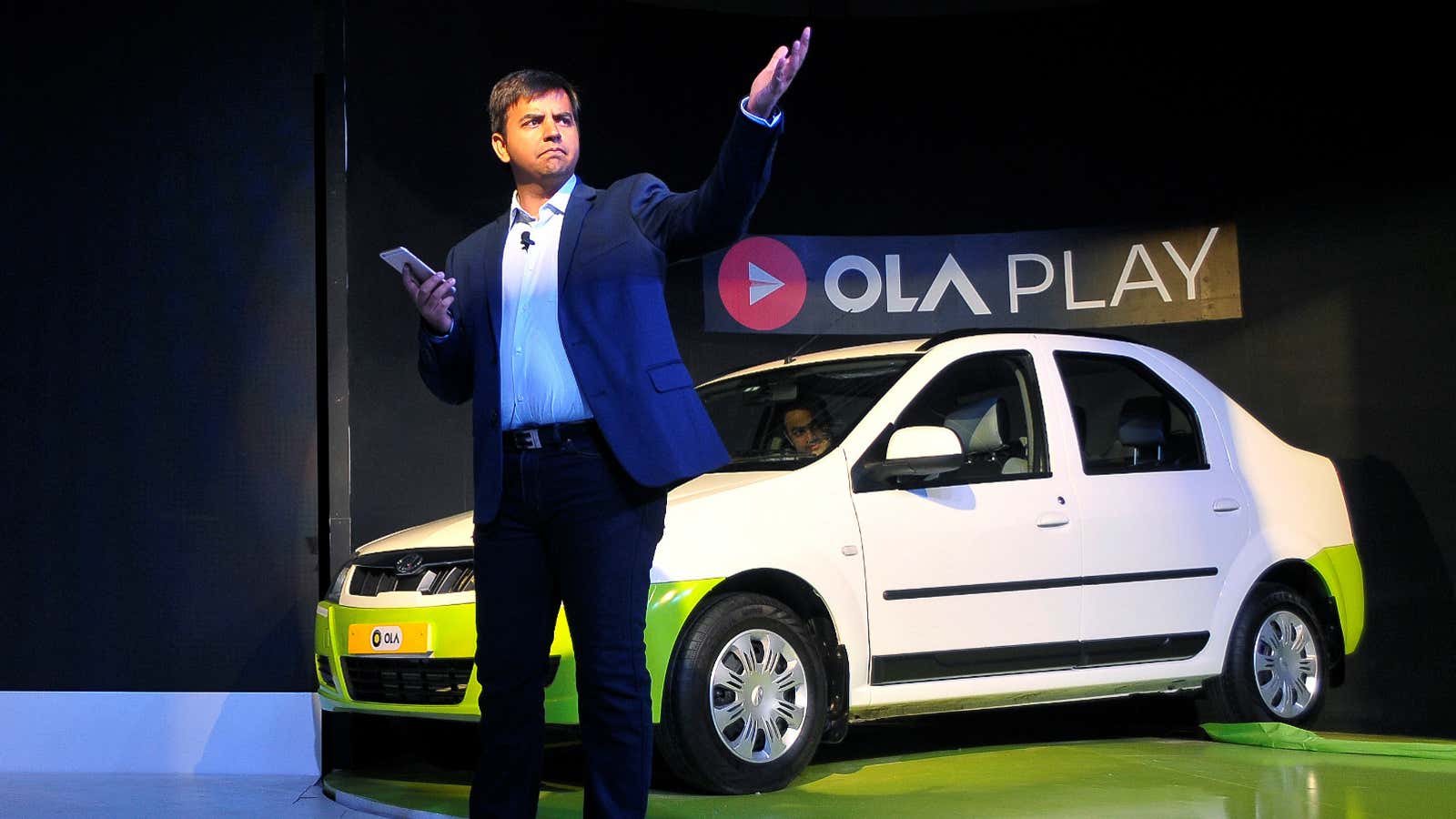Bhavish Aggarwal, the co-founder of online taxi aggregator Ola, is apparently preparing for battle.
At an event in Hyderabad on March 27, the 31-year-old entrepreneur compared himself to a “local guerrilla” in the Vietnam War, readying to fight it out in the battlefield of India’s online taxi market.
“(China’s Didi Chuxing) versus Uber was like World War II, but in India (Ola versus Uber) would be like the Vietnam War. We will be like the local guerrillas and move to the nooks and corners of our country,” Aggarwal said, according to the Economic Times newspaper. Presumably then, he’s the VietCong, not the North Vietnamese Army?
For some odd reason, Aggarwal, an alumnus of the elite Indian Institute of Technology, Bombay, appears to have forgotten that these were actual incidents where millions of people lost their lives.
In World War II, which lasted from 1939 to 1945, an estimated 60 million people were killed, of which 40 million were civilians. The Vietnam War went on for even longer, stretching from 1954 to 1975, with 1.3 million military casualties and about a million civilian deaths.
So, what was the death toll in the Chuxing-Uber war, and how bloody is the coming Ola-Uber battle likely to be?
If Aggarwal wanted to explain that Ola’s better understanding of the Indian marketplace will help it beat Uber—and that may well be the point he was trying to make—there were countless other analogies he could’ve employed. His choice to blatantly disregard the loss of millions of lives in two bloody wars is egregious. In fact, to equate any war with a business rivalry is a bad idea: What if Aggarwal had said the contest between Ola and Uber is like the conflict in Syria?
His distasteful remarks also highlight how startup entrepreneurs, fuelled by venture capital and private equity, have forgotten their companies are staffed with real people.
In recent weeks, the two biggest taxi aggregators in the country, Ola and Uber, have come under fire from their own drivers because of falling earnings. Drivers have gone on strike in major cities across the country demanding better pay, forcing state governments and even the courts in some instances to step in and manage the situation. Wages have fallen lately as taxi aggregators withdraw lucrative incentives, which were once offered to lure drivers.
In these circumstances, Aggarwal’s chest-thumping about guerrilla tactics from the Vietnam War is not only tasteless but also disconcerting. The young man needs a lesson in history, and humility.
We welcome your comments at [email protected].
